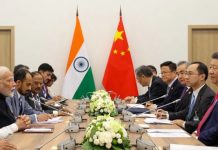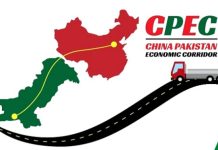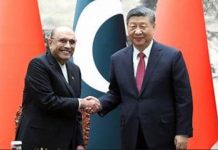By Zhong Sheng, People’s Daily
The U.S. government recently declassified two documents at Chile’s request. These two documents, together with previously declassified ones by the United States, indisputably prove that the United States was behind the scenes orchestrating the coup in Chile 50 years ago.
This once again shows that the United States has long regarded Latin America as its “backyard,” seeking hegemony in the region in the name of Americas. Its reckless military intervention and economic plunder in Latin American countries have caused severe disasters for the people there.
According to the two documents, President’s Daily Briefings compiled by the Central Intelligence Agency, the U.S. government not only had prior knowledge of the information about the military coup launched by Augusto Pinochet, then Commander-in-Chief of the Chilean Army, in September 1973, but also provided support for the military coup.
Previously declassified documents from the U.S. National Security Archive also showed that the United States considered Salvador Allende, then President of Chile, a threat. The United States obstructed his administration through diplomatic, political, economic and other means, and also plotted to overthrow the administration through smear campaigns, covert assassinations, and instigating military coup.
Fifty years has passed, yet the scars left on the Chilean society by the coup remain unhealed. During a recent event in Santiago commemorating victims of the coup, Chilean President Gabriel Boric said the painful experiences brought by this coup have left an indelible mark on generations of Chileans. However, the U.S. government has not shown any remorse or apologized to this day.
In a statement released the other day, the U.S. Department of State even shamelessly claimed that the declassification of the documents “is consistent with our joint efforts to promote democracy and human rights in our own countries and around the world. “
How exactly has the United States been “promoting democracy and human rights” in Latin America?
In 1823, the country issued the Monroe Doctrine, declaring “America for Americans.” However, as a matter of fact, it was treating Latin America as its own exclusive “backyard.”
Former U.S. President Theodore Roosevelt once openly declared that the United States must exercise an international police power in the Western Hemisphere for the sake of adhering to the Monroe Doctrine.
In the 200 years since the Monroe Doctrine was introduced, the United States has adopted various means to plunder Latin America’s natural resources, undermine the economies of Latin American countries, and interfere in their domestic affairs, which led to economic decline and social turmoil, and intensified inequality in these countries.
A Harvard University study showed that in less than 100 years between 1898 and 1994, the U.S. government plotted and carried out at least 41 coups in Latin America, equivalent to one coup every 28 months.
Even today, the poisonous legacy of the Monroe Doctrine remains. The United States readily imposes sanctions and suppression against “disobedient” Latin American countries, and even attempts to use Latin American countries as pawns in camp confrontation, forcing them to take sides.
Gabriel Merino, professor with the National University of La Plata in Argentina, pointed out that Latin America and the Caribbean have been deeply harmed by U.S. hegemony.
The so-called “promotion of democracy and human rights” by the United States cannot conceal the damage inflicted on Latin American countries by the Monroe Doctrine. American hegemony is meeting increasing resistance and opposition in Latin American countries.
At last year’s Ninth Summit of the Americas hosted by the United States, the U.S. side tried to rebuild its leadership in the Americas by taking advantage of its home turf. However, due to the country’s refusal to invite the leaders of Cuba, Venezuela and Nicaragua, the summit was publicly boycotted by leaders of many Latin American countries.
A commentary on the website of U.S. magazine Foreign Policy pointed out that a major characteristic of the U.S. when it comes to Latin American issues is “ignorant arrogance.”
Mexican President Andres Manuel Lopez Obrador said that there should no longer be the Monroe Doctrine, interventionist policies, blockades against other countries in the Americas, nor should any one country dominate the region.
At present, the “Global South,” comprising emerging market countries and developing countries, is steadily increasing its voice and influence in international affairs. Latin American countries are also continuously taking new steps towards solidarity and self-strengthening.
The United States should recognize the trend of the times, genuinely respect the sovereignty of Latin American countries and their people’s rights, and practically abide by the basic norms of international relations. Only in this way can it possibly establish normal relations with Latin American countries.
(Zhong Sheng is a pen name often used by People’s Daily to express its views on foreign policy and international affairs.)












